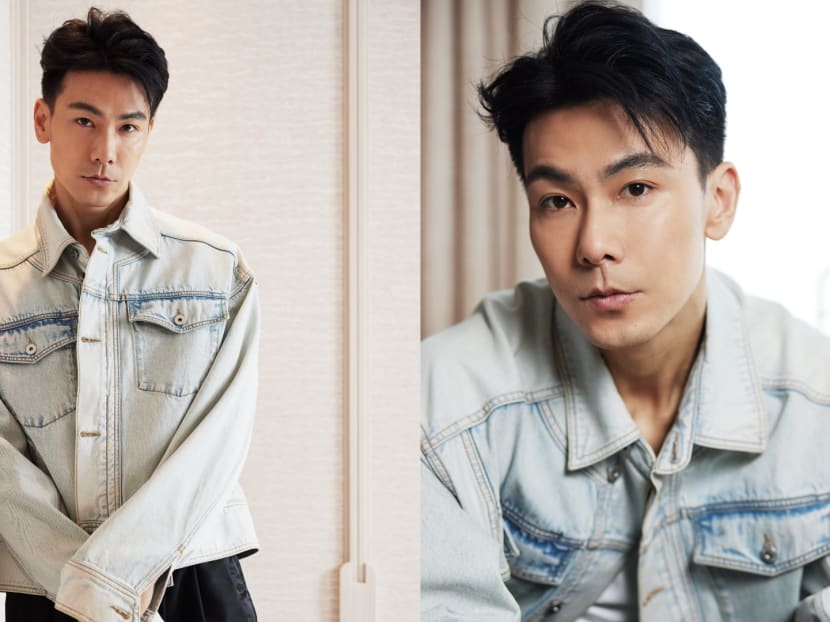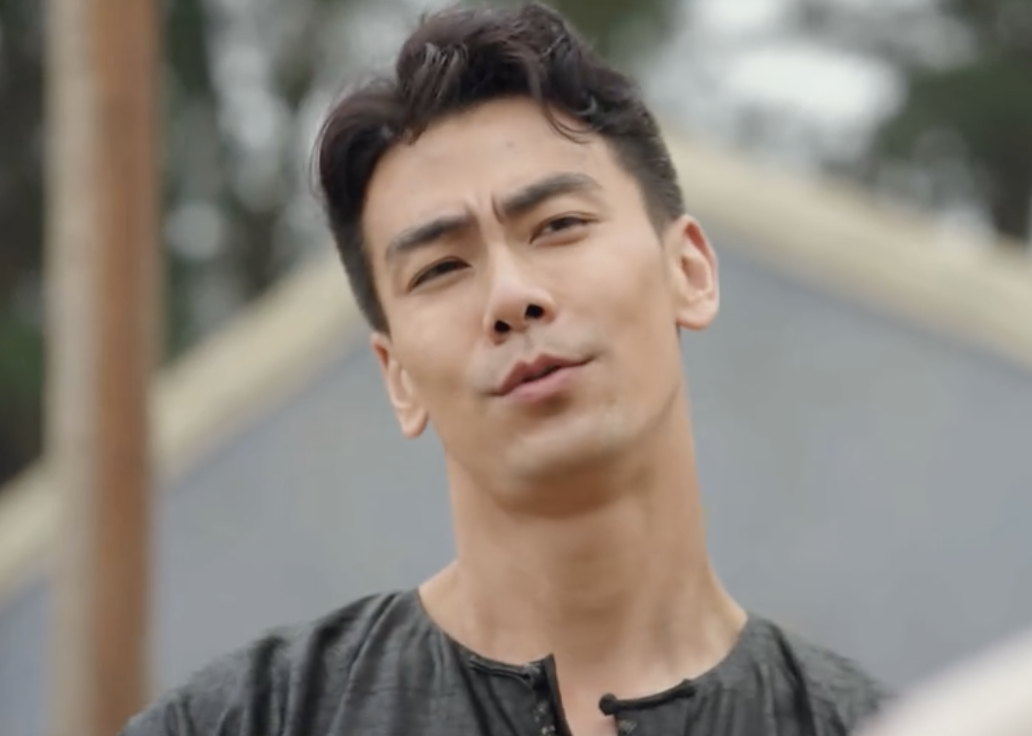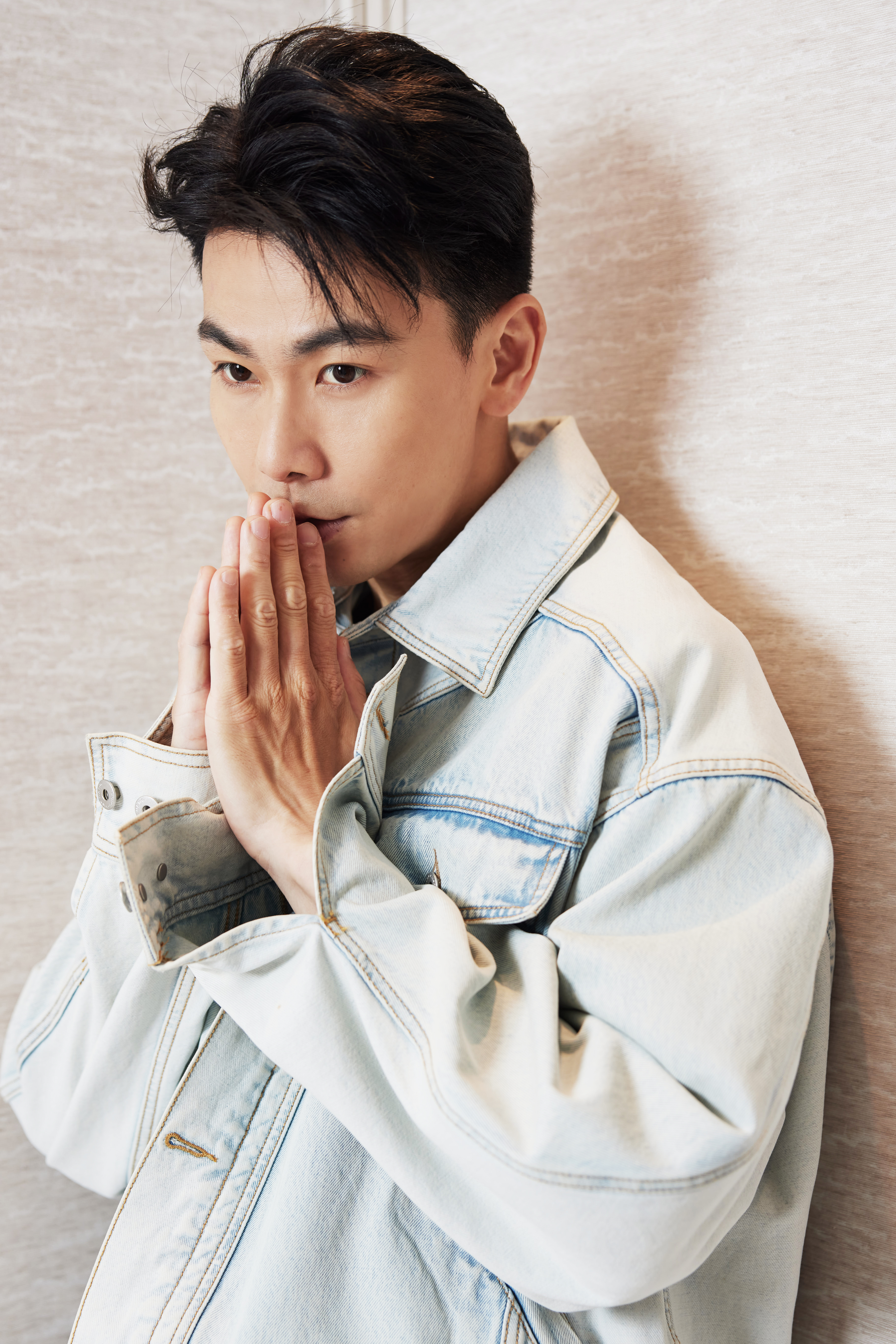Dai Xiangyu Was Jobless For A Few Years When He Left Singapore To Become A “30-Year-Old Newcomer” In China

No part of this story can be reproduced without permission from 8days.sg.
Former Mediacorp actor Dai Xiangyu, 38, was in town earlier this week to promote his new iQIYI drama Sisterhood. Upon meeting us at the Marina Bay Sands suite and exchanging pleasantries, the first thing he asks us - “Did you watch my dramas when you were younger? How old were you then?”
Honestly, we weren’t expecting to do quick maths at 10 in the morning.
While we try to recall how old we were when Xiangyu appeared in his breakout role as Japanese photographer Yamamoto Yousuke in the 2008 hit drama The Little Nyonya, the actor lets out a laugh as he continues: “Please don’t tell me you were five. Yesterday, I had some people tell me they were fans of me as kids - they were five!”
Catch Dai Xiangyu in all his glory in The Little Nyonya below:
That’s when we realise Xiangyu was, as young people would say, shook to find out that kids who used to be fans are now in their 20s. He heaves a sigh of relief when we eventually answer “12”.
It also brings things to perspective - it’s been a good 10 years since he last appeared on our screens.
The actor left Mediacorp in 2013 at the height of his popularity, much to the dismay of his fans. Xiangyu later reveals that his decision came as a surprise to his then-manager too, and admits that his move back to China was a risky one.
But first, a little on his new show.
 Xiangyu plays gangster Kuang Haisheng in Sisterhood
Xiangyu plays gangster Kuang Haisheng in Sisterhood
Sisterhood stars Yelena Shaw (肖燕), who plays a Guangdong native who travels to our shores, known as Nanyang in the 1930s, to make a living as a Samsui woman. Xiangyu plays a gangster who falls hard for her.
“I hope people will be inspired by this show to find out more about their roots and get to know more about how the older generation used to live ,” says the actor. “As times progress, we don’t know where we come from,” he muses.

8DAYS.SG: Do you still keep in contact with your former colleagues here?
DAI XIANGYU: I don’t. I don’t make friends in showbiz. Even in China, I don’t make a lot of friends in this industry.
I think it’s interesting - even in China, many of my friends are people I got to know in Singapore. They went to China after working on their careers here, but they’re in branding, investing, and other fields. Many are Singaporeans ‘cos they’ve seen my shows and know of me.
What are some differences between working in Singapore and working in China?
In Singapore, [being an actor] is more like a job. In China, maybe there’s a higher level to it.
[We think about] the number of viewers who will watch our shows, and what we can bring to them. It’s not just about doing a job. I will bring suggestions to the director and talk about what could be improved - like how we can make props more fitting for an era. Our goal is to let the audience get a better show.
Competition in China is very fierce, there are so many shows being released every year, [and you must think about] how you’re gonna stand out from the rest.
Like you said, competition in China is fierce. Do you ever regret leaving Singapore, especially when you were doing well here?
When I was in Singapore, I felt like I was at a place where I didn’t know how to move forward anymore.
One day, I told my boss that I was considering going back. After that, the media kept pitting me and Elvin Ng against each other. I always told Elvin - and the media - “You belong here, I’ll choose to go back to China.”
Back then, even my manager couldn’t understand me. They said: “Why do you want to [leave]? You’ll be a 30-year-old newcomer, why must you do that?”
I wanted to see what the world was like [beyond Singapore’s showbiz]. In Singapore there are only period dramas and modern dramas, but in China there are historical dramas of all sorts and I wanted to try that out. I also wanted to bring things I [learnt] in Singapore back to China, and I hoped that when I did well in China, I would bring that back to Singapore.
I felt like my manager really thought I was going crazy ‘cos I wanted to be a newcomer in my thirties.
Sisterhood made me feel proud of myself for the first time ever. I have high expectations of myself, and there aren’t many things that I’m proud of, but I’m quite proud of this show ‘cos I’ve finally fulfilled my wish of bringing [something back].
I didn’t have any work during the first few years after going back. In China, it’s really tough. There are so many actors and so many people, when you go back people will treat you as a ‘Singapore actor’, and your Chinese won’t be up to scratch. [I was also] an ‘older person’ starting out in a new environment. I doubted myself too, but [looking back], I don’t think the past 10 years were for nothing.

Would you come back and act in a local production if given the chance?
Of course. (Pauses) Maybe I’m talking big, but I don’t need to toil so hard anymore, I don’t need to fight to make a living. So, if I did come back, I’d be more interested in the kind of role I’d play.
I’d speak to the production team and ask what I can bring to the table. Audiences these days are not oblivious, and they expect more from local dramas. I’ve heard people say that they can watch the first episode and last episode of a show and know what happens in between. There was a show last year about a boy with intellectual disabilities (Your World in Mine) and it did so well. It might be the engaging theme of the drama that moved people.
What’s your fondest memory from working at Mediacorp?
I have so many. (Pauses to think)
When I was younger, I didn’t have a good temper and I always fought with the director. However, I think I’m a very sentimental person. I can remember how all the directors I’ve worked with look like. What you guys don’t know is that I got the worst scoldings from them. (Chuckles)
I would describe myself as… When I first came to Singapore to work, every night, when I went to sleep, I would be physically lying down but my heart would still be ‘standing up’ - my spirit was very alive. I would get scolded and cussed at every single day, they would [shout at me] “What are you doing!”
I wasn’t really concerned with fame; I would sleep on the ground after a heavy rain during outdoor shoots ‘cos I was really too tired. The production assistant would bring an umbrella over and say “you’re an Ah Ge, can you stop sleeping on the floor?” But I would tell them to just let me sleep ‘cos I was so tired (chuckles). I don’t know if it’s still like that now, but it used to be very tiring working at Mediacorp. When I first came, I didn’t go home for four years because I was so busy. I feel like when you’re the poorest, you’re the most tired, but now I’m not as tired anymore.
[These days] it’s troublesome to [interact with others] in China. Everyone is a bit scared to talk to each other [because of the way things get misconstrued] , I don’t dare to talk to female actresses, so basically when we finish filming, we would return to our own cars without much interaction and return to work the next day.
How do you respond when the media asks if you’re friends with your co-stars then?
I always say we’re not friends. I don’t see the need to be dishonest because people can feel it too. If you’re not friends, you’re co-workers. Of course, you would feel closer to someone who plays your lover or parents, but would you go out for a meal with them? You wouldn’t. I’m married and for me to go for meals with my female colleague? If we get caught by the paparazzi, we’ll die a terrible death (laughs).
It’s a problem and Chinese netizens are more ‘strict’; they will understand you the way they want to. If they collectively think the same thing, that becomes the truth, and it doesn’t matter what you say.
Photos: Kelvin Chia, iQIYI
You can catch Sisterhood on iQIYI.



